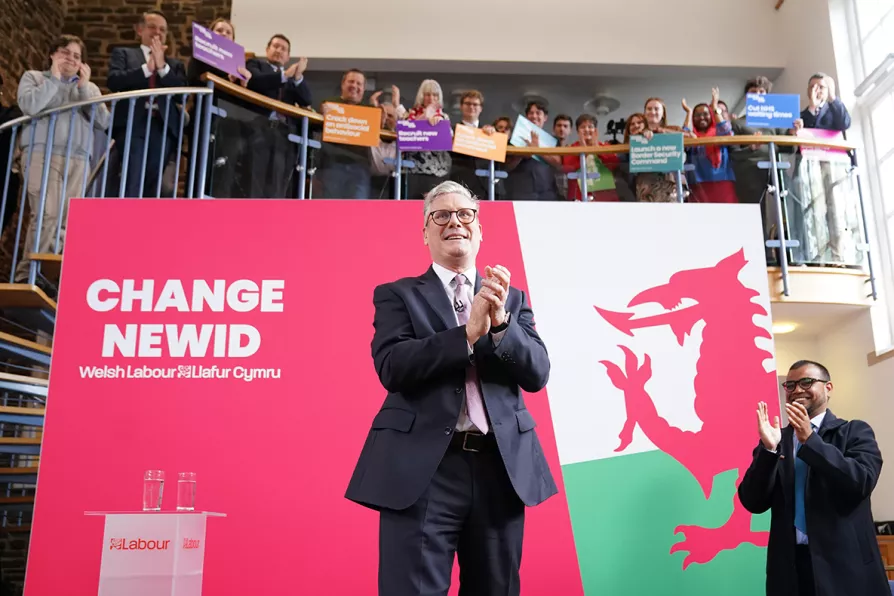This weekend, the NEU holds a special conference to debate changing its approach to organising teaching assistants, which a 2017 TUC agreement forbids. General secretary DANIEL KEBEDE outlines the choices before delegates
We reject Labour’s hollow vision for Wales
As the Starmer regime parachutes in disconnected candidates and offers little more than hot air, Plaid Cymru is mounting a real challenge to the decades of decay and decline forced on us by Westminster, writes LUKE FLETCHER MS

 Sir Keir Starmer speaks at the launch of Labour's six steps for change in Wales at the Priory Centre in Abergavenny, while on the General Election campaign trail, May 30, 2024
Sir Keir Starmer speaks at the launch of Labour's six steps for change in Wales at the Priory Centre in Abergavenny, while on the General Election campaign trail, May 30, 2024
IT has been just over a fortnight since we witnessed Rishi Sunak slogging through a downpour to declare a general election.
After a less-than-inspiring speech about his government’s achievements and election promises, Sunak returned to No 10 looking like he’d just lost a fight with a garden hose.
By the reckoning of the Establishment consensus, this will likely be the soggy end to a sorry Tory saga.
Similar stories

In the first of a series of interviews with leaders of progressive parties in Wales ahead of the May 7 Senedd election DAVID NICHOLSON talks to Plaid Cymru leader Rhun ap Iorwerth

LUKE FLETCHER fleshes out Plaid Cymru's plan for the revitalisation of Wales's economy












